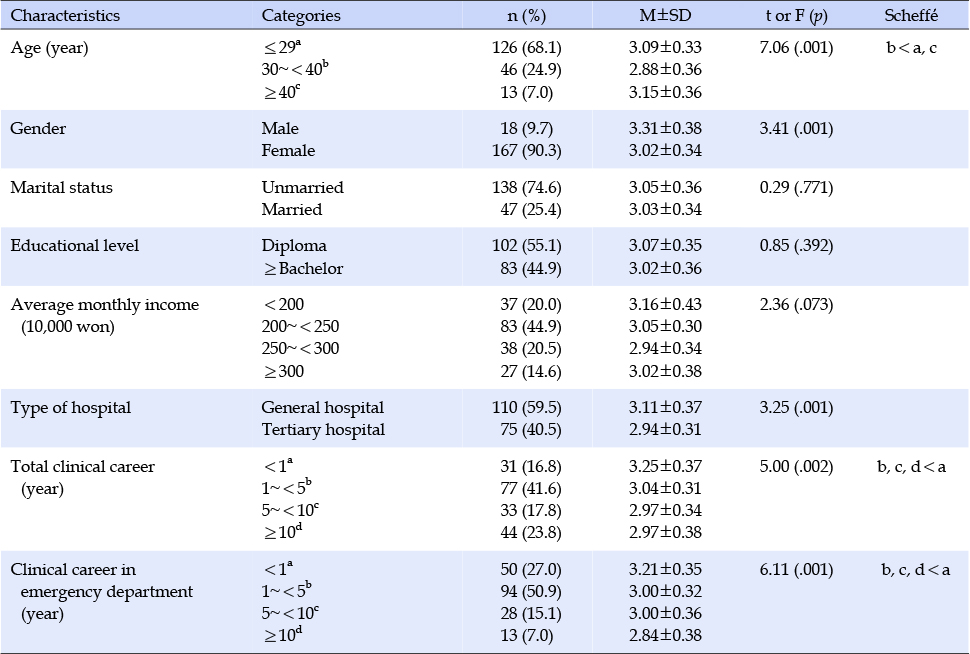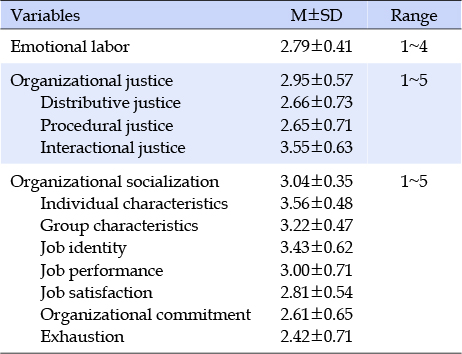1Daegu Catholic University Medical Center, Korea.
2College of Nursing · The Research Institute of Nursing Science, Daegu Catholic University, Korea.
Copyright © 2017 Korean Academy of Nursing Administration
This is an open access article distributed under the terms of the Creative Commons Attribution Non-Commercial License (http://creativecommons.org/licenses/by-nc/3.0/), which permits unrestricted non-commercial use, distribution, and reproduction in any medium, provided the original work is properly cited.
This article is a revision of the first author's master's thesis from Daegu Catholic University.



*Dummy variables: gender (0=man, 1=woman), type of hospital (0=general hospital, 1=tertiary hospital).
*Dummy variables: gender (0=man, 1=woman), type of hospital (0=general hospital, 1=tertiary hospital).